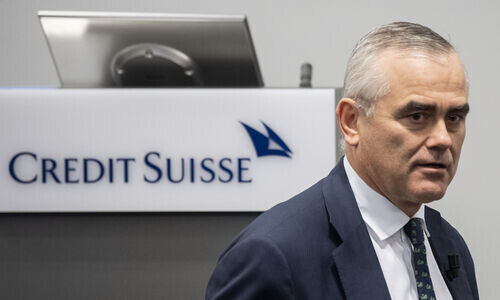At Credit Suisse, signs are mounting that the Greensill disaster may herald the end of the Swiss bank’s one-bank strategy.
Zurich-based Credit Suisse may ring-fence its troubled asset management unit into a separate holding company, CEO Thomas Gottstein told «Bloomberg» on Monday. The bank had only last week carved the money management unit out of its wider private bank under new management.
Gottstein’s relatively bland remarks downplay the dramatic nature of the step, which could represent an end to the «one bank» strategy of collaboration it has pursued for years. «One-bank» worked perfectly with Greensill and founder Lex Greensill – until it didn’t.
Sold To Wealthy Clientele
Gottstein’s apparent willingness to put Credit Suisse «one-bank» into play over the scandal reveals how large the Greensill issue may be for the lender. The approach has led it into a $10.1 billion fund disaster as well as an as-yet-indecipherable dent to Credit Suisse’s reputation and major questions around its management of risk across the bank.
Credit Suisse also warned it may cause clients to take their assets and run; the bank had sold a sizable share of the supply chain funds to its wealthy private clientele, as finews.com reported on Friday. Last week, Credit Suisse said its home regulator, Finma, is requiring it to put up additional capital – known as Pillar 2. This type of buffer on top of mandatory capital is meant to cover additional risks.
Various Cross-Ties
On Monday, Gottstein signaled Credit Suisse feels the Greensill issue is one mainly at its asset management unit, which co-managed the supply chain funds and will be on the hook for any losses. However, Credit Suisse granted a controversial $160 million bridge loan to Greensill Capital last year and reportedly banked the company’s founder, Lex Greensill, in its wealth management arm.
Meanwhile, Credit Suisse’s asset managers were touting the supply chain funds as recently as in December, long after Germany began investigating at Greensill’s German bank mid-2020. The Swiss bank also faced a slew of potential lawsuits from disgruntled investors in the funds.




































